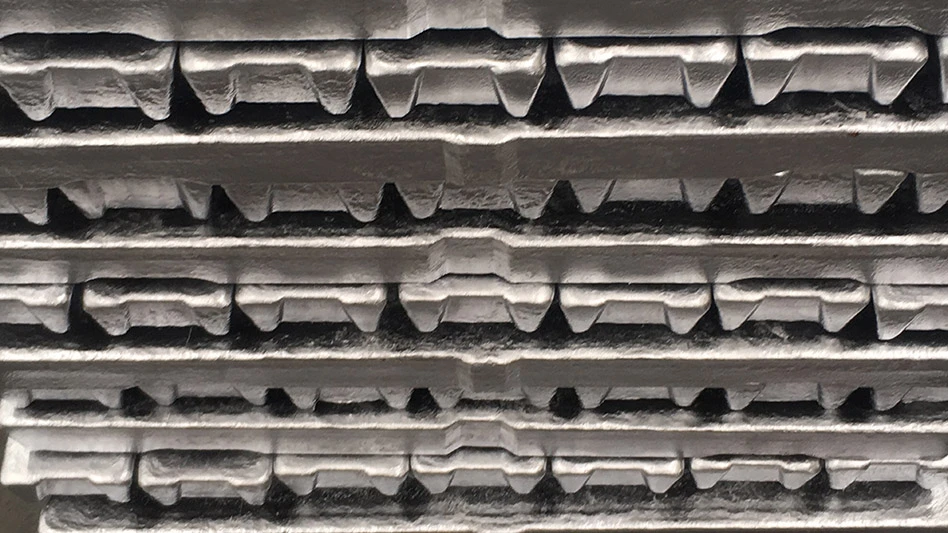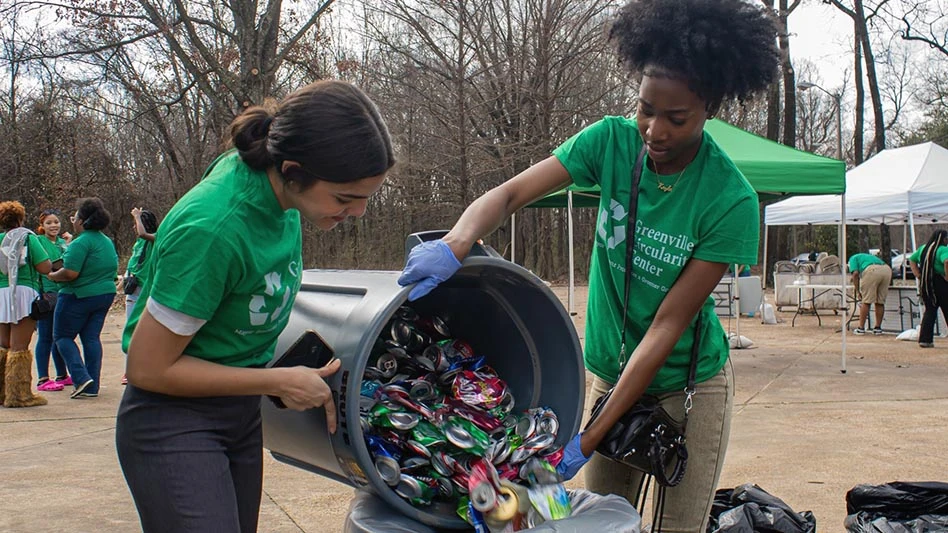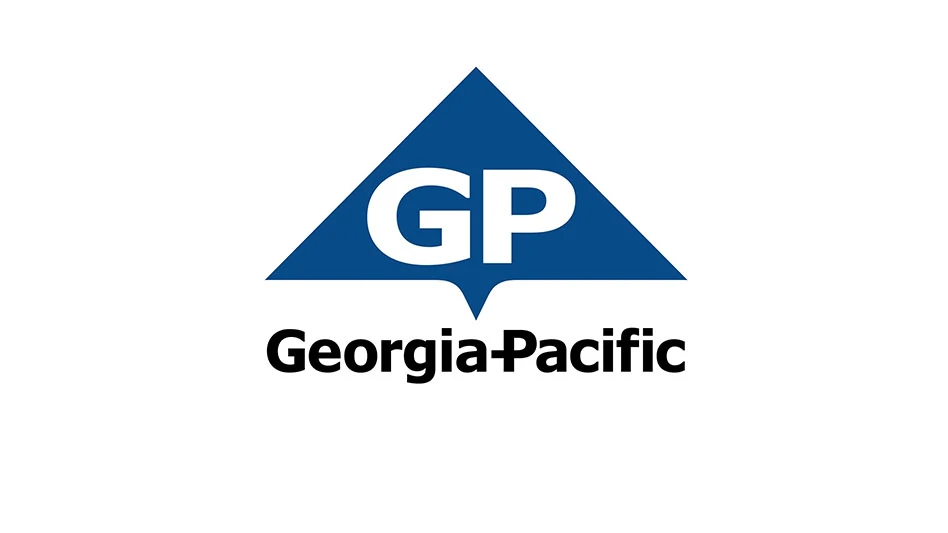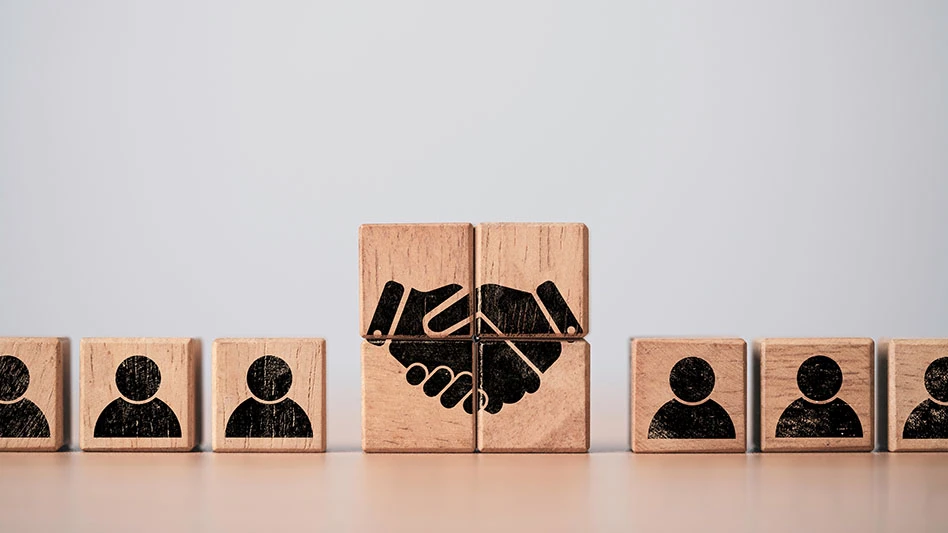
Rhode Island Resource Recovery Corp. (RIRRC) is a quasi-state agency whose everyday mission is to provide safe, environmentally compliant, clean and affordable solid waste and recycling services for the Rhode Island community. We own and operate the state’s central waste facilities, including Rhode Island’s Central Landfill, composting operation and material recovery facility (MRF).
Rhode Island has statewide programs for special materials, such as plastic bags and film, TVs, computers, mattresses, paint, CFL (compact fluorescent) bulbs, household hazardous waste and, yes, one unified mixed recycling program. That makes our state unique and insanely lucky, but that doesn’t make it immune to the challenges faced by other states across the nation—mainly contamination of the mixed recycling stream in the midst of tough commodity markets that demand higher-quality material.
Recycling pioneers
In 1986 Rhode Island was the first state in the nation to pass mandatory recycling. RIRRC expanded the materials accepted in the state’s “Maximum Recycling” program in 1995, and in 2012 underwent the biggest change in our history as we renovated our MRF into a single-stream facility. We launched a new brand for the state program, now the “Recycle Together RI” program, and with it, a public education campaign that included TV, radio, web, social media and a mass mailing to Rhode Island households.
Fast forward three years. The number of municipalities that implemented automated recycling collection with carts was steadily on the rise, as was the amount of commercial recycling RIRRC received at our MRF from businesses, institutions and larger residential complexes—all good, intended consequences; however, there was a not-so-good, unintended consequence, too. Whether it was confusion over the message to mix materials together or the inability of haulers to see inside of recycling carts and quickly nip recycling mistakes in the bud (or a combination of both), contamination of our mixed recycling stream rose dramatically.
To combat this increase in contamination, RIRRC launched another statewide education campaign with two key messages: Trash in the recycling costs you money and puts our workers at risk.

Postcampaign, we saw a 9 percent dip in contamination, but this simply wasn’t enough. That’s when we reached out to Recycle Across America (RAA).
The first time we came across RAA’s website, we were hit with a chaotic collage of dozens upon dozens of different recycling bin labels and signs. RAA used the imagery to drive home its point about why people are so confused at the bin. Why DO they all look so different? I personally laughed out loud when I recognized one of them as my own design from a previous job. Was it a good label? I’d like to think so. Was it different than every other label on the planet? You bet. Recycling bin labels, it seems, are a lot like snowflakes.
Point taken; but, still, my colleagues and I didn’t quite understand how recycling bin labels could ever be exactly the same because recycling programs and what they accept are not standardized throughout the country. Luckily, we quickly learned we could start with the standard RAA label and, through a partnership, co-brand them and tailor the images to reflect the materials we accept. For example, in addition to what is displayed on the standard RAA “mixed recyclables” label, we accept cartons, foil and additional types of plastic containers in the Recycle Together RI program. In the end, we worked with RAA to create a Rhode Island version of its bilingual label, to be used anywhere, statewide.
On Earth Day 2016, Rhode Island became the first U.S. state to adopt the RAA labels. RIRRC entered into a public sector licensing agreement with RAA, resulting in the donation of 36,000 labels to Rhode Island’s 360 public schools and districts. Distribution began through our existing, long-standing relationships with many schools. Using these connections and collaborating with organizations like the Rhode Island Association of Superintendents and the Rhode Island Association of School Maintenance Directors, we plan to have labels in every public school by the end of 2016.
Expanded effort

As part of this same public sector licensing agreement, we’re also providing free labels to every state agency and to each of our 39 municipalities to use in municipal buildings and public spaces. Our municipalities also can pool together to purchase more labels through our print vendor. The licensing agreement includes support from RAA, such as the creation of custom file sizes for specialty orders, like extra-large labels for roll-off containers.
We also entered into a second licensing agreement for the private sector. A first-of-its-kind agreement for RAA, RIRRC is offering free 5.5-inch-by-8.5-inch labels to any private business or institution in Rhode Island—including private schools—that participates in the Recycle Together RI program. Private sector participants wanting specialty sizes, or other RAA labels (the organization makes them for other waste streams too, like e-scrap, compost and trash), will still order those directly through RAA. Although we want to encourage as many private entities as possible to stick to our unified design, they have the opportunity to partner with RAA, as we did, to co-brand the Rhode Island label. Again, because of our long-term relationships with many businesses and institutions through our free education, outreach and technical assistance programs, offering the labels directly is an easy way to get them on bins, fast.
Recycling right
In addition to the distribution of labels to our schools, state agencies, municipalities, businesses and institutions, RIRRC plans to launch another education campaign in 2017 using RAA’s celebrity “Let’s Recycle Right” PSA materials (also provided as part of the licensing agreement). The campaign’s purpose will be to highlight the standardized labels and drive Rhode Islanders to RIRRC’s forthcoming new website. The website, and its accompanying educational materials, will take a new, tiered approach to recycling education.
On Tier One we have the labels. As they make their way onto bins across the state, they will become the educational piece seen by the highest number of Rhode Islanders. They provide the simplest instructions imaginable: paper, cardboard and cartons; metal cans, lids and foil; glass bottles and jars; plastic containers.
On Tier Two, we’re developing basic guidelines to match the labels. These will be housed on our website and also will be distributed during our education programs and via direct mail. These will most likely be seen by the next highest number of our residents, and their aim is simple: get everyone to “good.” If Rhode Islanders follow the basic guidelines and nothing more, then, yes, they’ll recycle some things we still cannot sort and sell yet—but the quality of the recycling will be solid. This approach requires that we only include (at least for widely broadcasted messaging) exceptions to the rules and tips for preparation that are critical. Much like the labels, the basic guidelines will be simple, clean and easily translatable—something especially important in and around Providence, where dozens of languages are spoken.
On Tier Three, we’ll keep our detailed guidelines accessible on our website for those Rhode Islanders who are passionate about recycling right and seek out that information. We lovingly call these folks our “Super Recyclers,” and we know you have them too—those residents who diligently clean their peanut butter jars and want to know if there is any way to recycle a pen cap. We’ll still provide our Super Recyclers with the detailed information they crave on the web, through our social media platforms and in my weekly column running in our state’s newspaper of record. The fewest Rhode Islanders will see this detailed information, yes, but their extra efforts to recycle right can create the rising tide to lift our recycling boat out of the mire of detrimental contamination.
We feel this new, tiered approach will complement the RAA labels already hitting the streets, and we look forward to the day where all Rhode Islanders see the same, consistent recycling messages no matter where they live, learn, work or play.
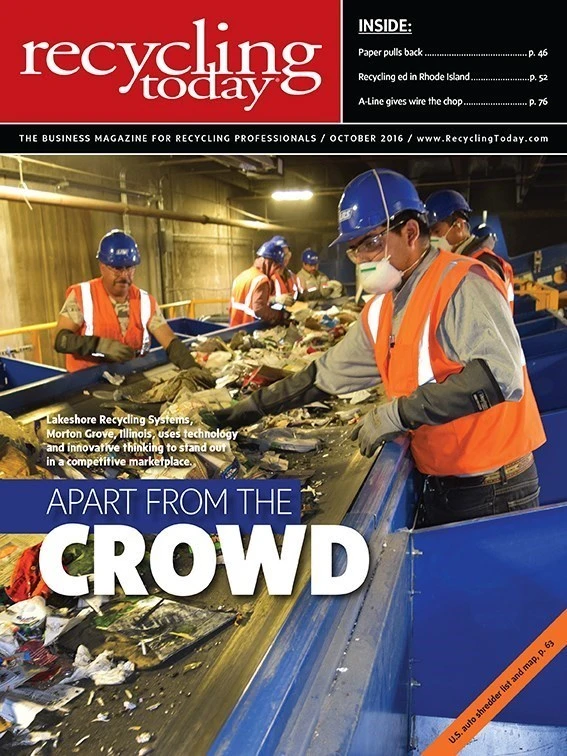
Explore the October 2016 Issue
Check out more from this issue and find your next story to read.
Latest from Recycling Today
- OnePlanet Solar Recycling closes $7M seed financing round
- AMCS launches AMCS Platform Spring 2025 update
- Cyclic Materials to build rare earth recycling facility in Mesa, Arizona
- Ecobat’s Seculene product earns recognition for flame-retardant properties
- IWS’ newest MRF is part of its broader strategy to modernize waste management infrastructure
- PCA reports profitable Q1
- British Steel mill subject of UK government intervention
- NRC seeks speakers for October event
